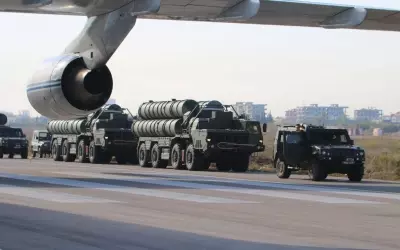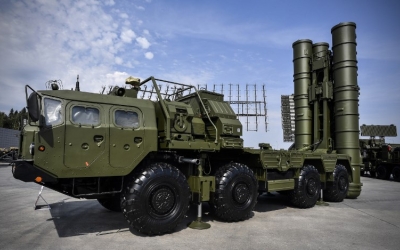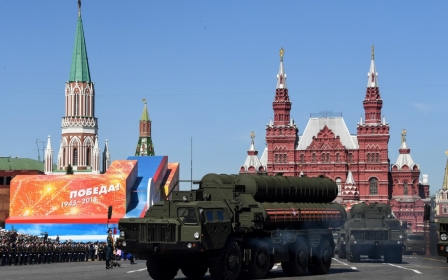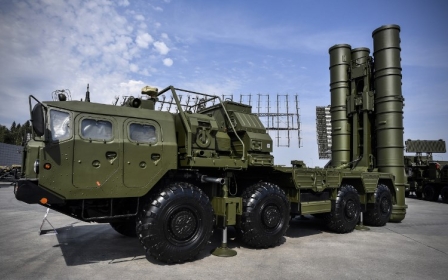US gives Turkey until end of July to backtrack on Russian missile defence deal
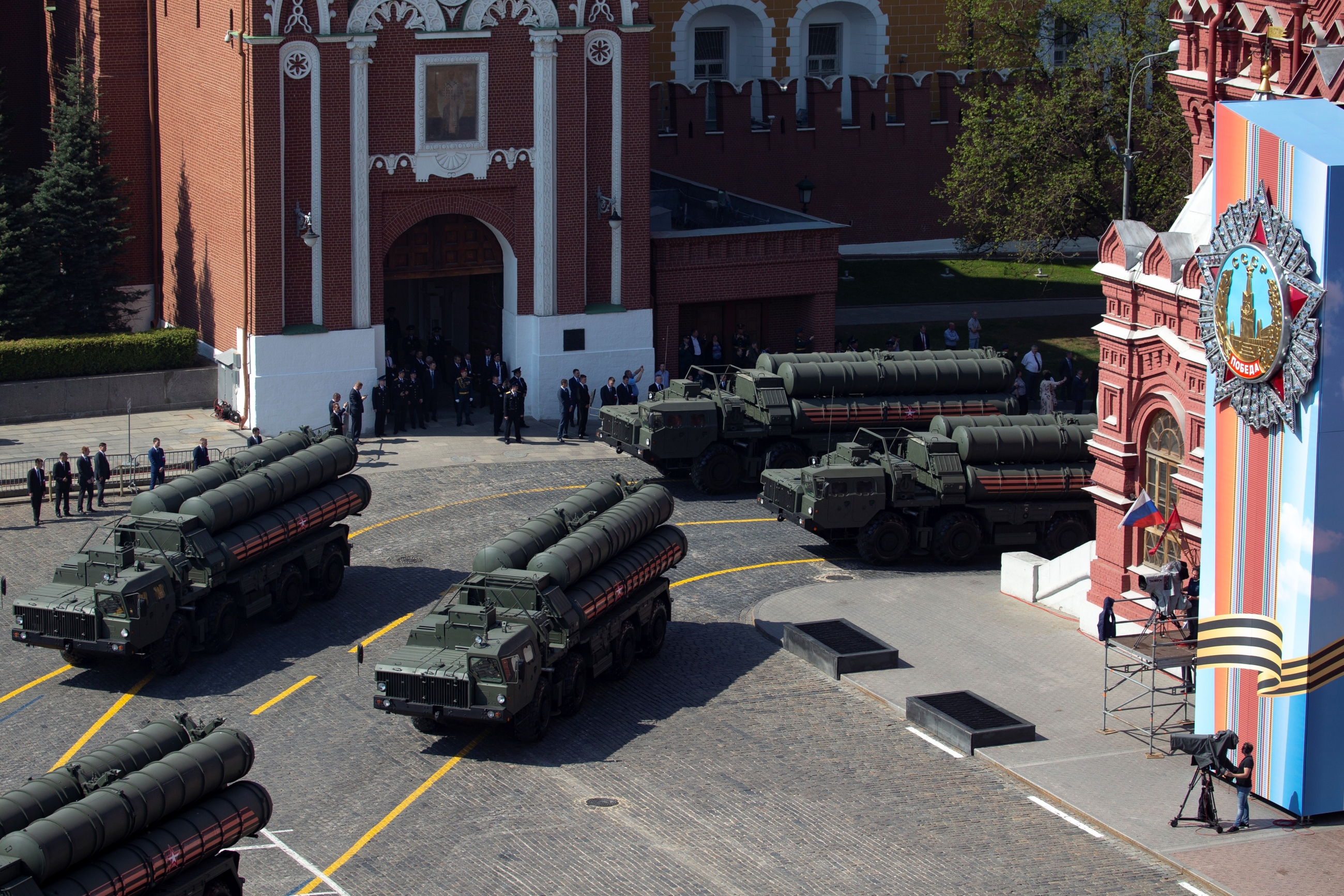
The United States raised the stakes in its standoff with Turkey, presenting its Nato ally with a fresh ultimatum: cancel plans to buy Russia's S-400 defence system or be expelled from a joint F-35 training programme.
Ellen Lord, the US under-secretary of defence for acquisition and sustainment, told reporters on Friday that Washington was giving Ankara until 31 July to meet its demands, AFP reported.
If it doesn't, Turkish pilots currently training in the US would be expelled and Turkish firms would not be allowed to participate in the programme, Lord said.
Reuters also reported that US Defense Secretary Patrick Shanahan also sent a letter to his Turkish counterpart on Friday, laying out the steps to "unwind" Turkey from the F-35 programme.
Shanahan's letter explicitly states there will be "no new F-35 training," the news agency said, and sets out the course of action should Ankara not alter its plans.
The two Nato allies have sparred publicly for months over Turkey's order for Russia's S-400 air defence system.
Washington says the system poses a threat to Lockheed Martin's F-35 stealth fighters, and Ankara cannot have both.
But the Trump administration so far has avoided taking steps to curtail or halt the planned training of Turkish pilots in the programme, a reprisal that could be seen as an embarrassment in Turkey.
"This training will not occur because we are suspending Turkey from the F-35 program; there are no longer requirements to gain proficiencies on the systems," reads an attachment to Shanahan's letter that is titled, "Unwinding Turkey's Participation in the F-35 Program".
'Option to change course'
Tensions have continued to rise between the two countries over Ankara's decision to purchase the Russian missile defence system.
A compromise seemed possible last week, with Turkish officials telling MEE that US President Donald Trump had spoken to his counterpart Recep Tayyip Erdogan and accepted an offer to form a joint technical study group with Turkey to investigate Washington's concerns.
Trump, the Turkish officials said, had overruled the Pentagon and State Department.
In his letter, Shanahan said that training for Turkish personnel at Luke Air Force Base in Arizona and Eglin Air Force Base in Florida would be discontinued at the end of July, Reuters reported.
This timeline will enable many, but not all, Turkish F-35 students currently training to complete their courses prior to departing the United States by July 31, 2019
- US Defense Secretary Patrick Shanahan, in letter to his Turkish counterpart
"This timeline will enable many, but not all, Turkish F-35 students currently training to complete their courses prior to departing the United States by July 31, 2019," it states.
Still, Shanahan said that Turkey still had time to avert its expulsion from the programme if it foregoes the purchase of the missile defence system from Russia.
"You still have the option to change course on the S-400," the letter reads, according to Reuters.
Four Turkish pilots are currently training at Luke, while two other Turkish pilots are working as instructors at the US base.
Twenty Turkish aircraft maintenance workers also are being trained at the base, the US military says.
Turkey has expressed an interest in buying 100 F-35s, which would have a total value of around $9bn at current prices.
Long-running dispute
If Turkey were removed from the F-35 programme, it would be one of the most significant ruptures in recent history of the relationship between the two allies, experts said.
But strained ties between Washington and Ankara already extend beyond the F-35.
The two countries have been at odds over their conflicting strategies in Syria, US sanctions on Iran and the detention of US consular staff and other US citizens in Turkey.
Amid mounting tensions, Turkey has said it is moving ahead with its purchase of the S-400 systems from Russia.
Minister of Defence Hulusi Akar said on 22 May that Turkish military personnel were receiving training in Russia on how to use the S-400, and that Russian personnel may come to Turkey.
Erdogan said on Tuesday that it was "out of the question" for Turkey to back away from its deal with Moscow.
On Friday, the head of Russia's state-owned defence conglomerate Rostec said that Moscow would begin delivering the S-400 systems to Turkey in two months.
"Everything is on track with the Turks. I hope that we will begin to deliver in about two months," Sergei Chemezov told NTV channel, AFP reported, citing Russian agencies.
"The credit money has been spent, the technology was produced, and we completed training of all the military personnel," Chemezov said.
Kathryn Wheelbarger, a senior Pentagon policy official, said last week that Turkey's completion of the transaction with Russia would be "devastating".
"The S-400 is a Russian system designed to shoot down an aircraft like the F-35," said Wheelbarger, an acting assistant secretary of defence.
"And it is inconceivable to imagine Russia not taking advantage of that [intelligence] collection opportunity."
The Pentagon declined to comment on whether it would accept new Turkish pilots. But it has stressed that discussions are taking place with Ankara on potentially selling to Turkey Patriot missile systems, which are made by US defence contractor Raytheon.
Erdogan said on Tuesday that the US had not put forward "an offer as good as the S-400s".
Middle East Eye delivers independent and unrivalled coverage and analysis of the Middle East, North Africa and beyond. To learn more about republishing this content and the associated fees, please fill out this form. More about MEE can be found here.


